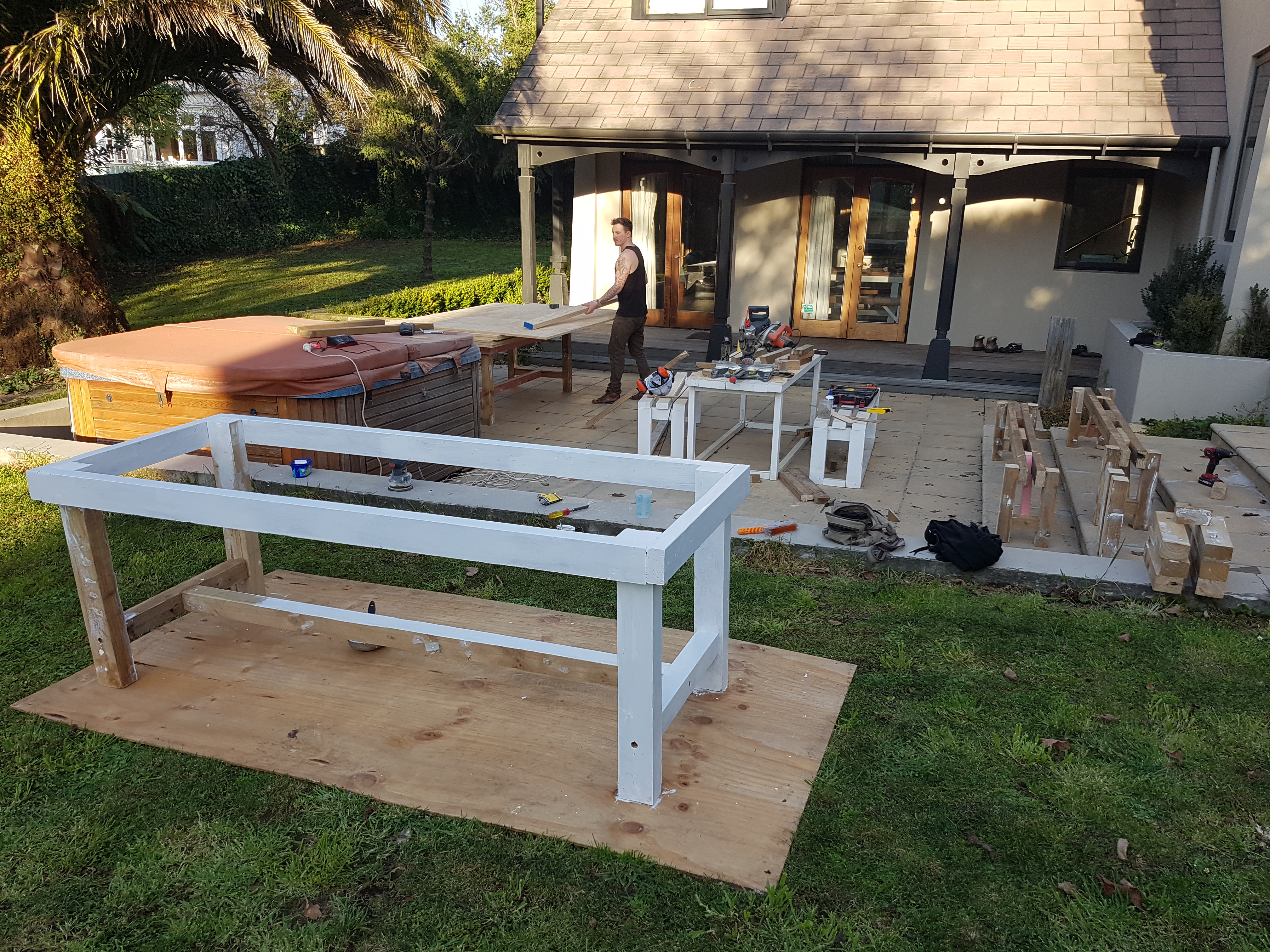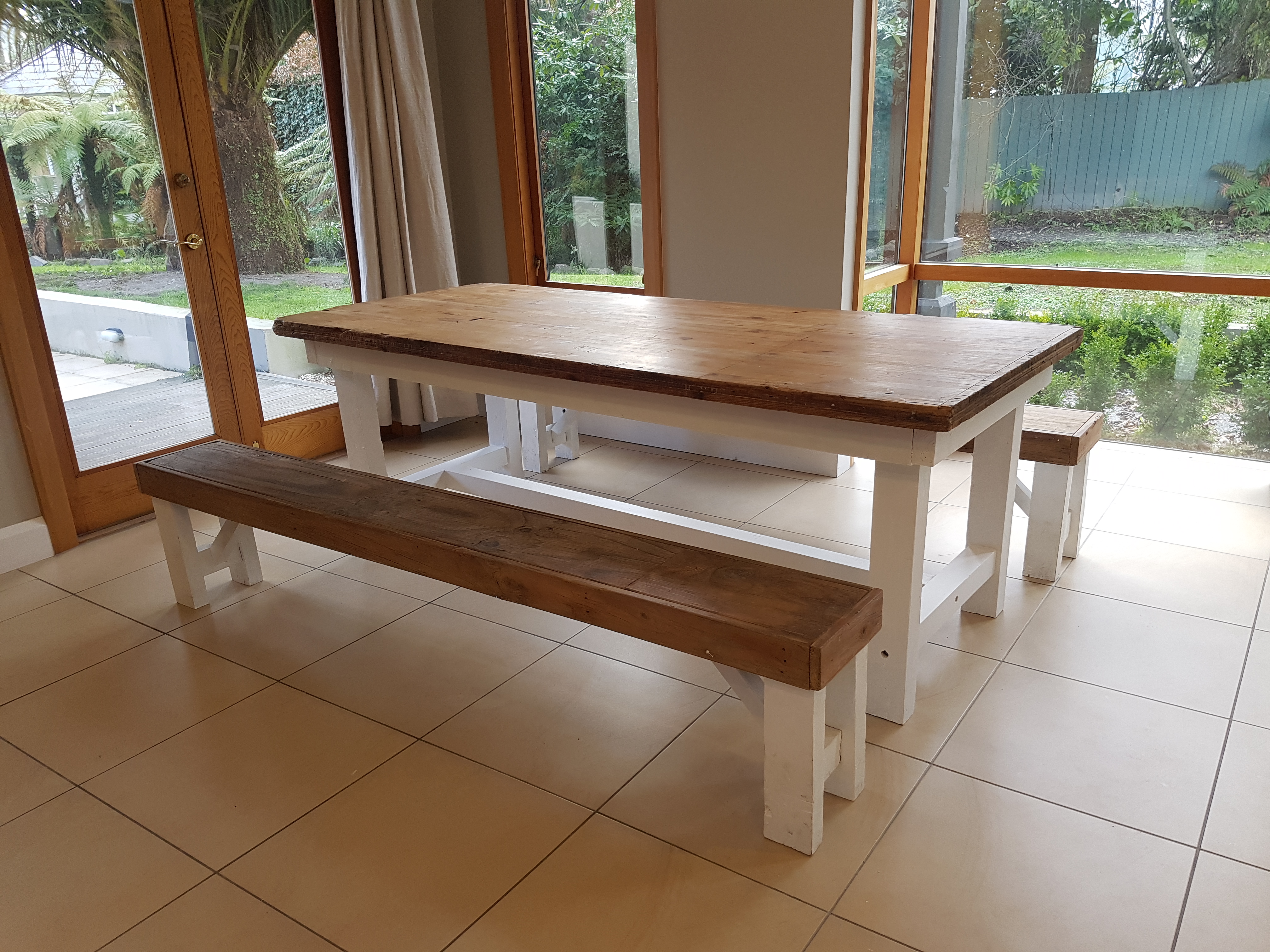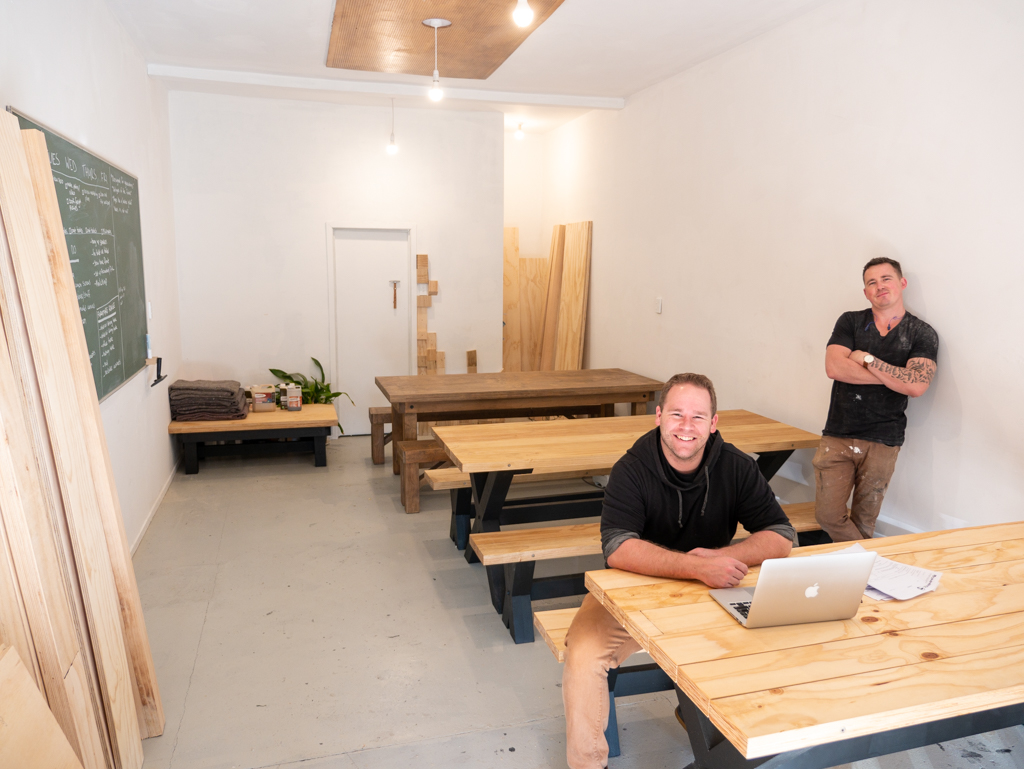Furniture business with sustainability at heart
Sept 8, 2022
A pile of scrap wood gathering moss in the garden is what launched this New Zealand owned, Christchurch-based business. Innate Furniture co-owners Nick Lee (Ngāi Tahu) and Guido Loeffler needed a table for their flat. When they decided to move out, they put the table up for sale on TradeMe. After it sold for $700, soon enough more and more people were requesting them to create custom tables. That’s when they knew that they were on to something good.
Loeffler shares, “Nick is pretty handy. He used scrap wood which he paired with an old door for the tabletop, that has probably been lying around for over 50 years, and he managed to turn it into a really nice looking table.”
They started Innate Furniture from their garage, building a table or two every month. When Covid-19 reached Aotearoa, many businesses got derailed and operations were disrupted, it became a catalyst for business growth.


Lee says, “We posted our timber table on the NZ-made Facebook page during lockdown and it received 4,000 likes within a few hours. After that, we pretty much got eight months’ worth of work.”
“There was a big push to support New Zealand made products, and the market changed. Containers were not coming in, and people couldn’t get furniture from overseas. And of course, our designs are sleek and the story about our focus on sustainability is powerful.”
They moved out of the backyard into a small workshop when restrictions were lifted but they outgrew their new workshop in six weeks as orders kept rolling in. They had to quickly find a bigger workshop, which is where they are now currently operating, in Addington.
Sustainability at the core
The business has done its homework to ensure they are sustainable, from choosing timber that is sourced sustainably and ethically, to staying away from chemical-based coatings, and even using New Zealand manufactured steel. They are also committed to limiting their carbon miles in sourcing materials – working with local suppliers and partners as much as they can.
Loeffler explains, “The timber that we use is all New Zealand grown. We don’t touch anything that is imported for a few reasons. One of the reasons is to keep carbon miles low and to ensure that we are not fueling a non-ethical supply chain. Much of the hardwoods in New Zealand come from rainforests overseas that are being clearfelled which cannot be replaced, and the removal of them are often displacing indigenous communities.”
“One of the timber species we use is salvaged Rimu that comes from old buildings being demolished. We also use Beech from the West Coast and Totara from Northland that are both sustainably harvested and regulated by the Ministry for Primary Industries under a continuous cover forestry management plan, the most sustainable forest management system in the world.”
Continuous cover forestry is an approach to forest management that maintains the ecology and biodiversity of the forest. The forest canopy is maintained, and there is minimal impact to the forest. Its main principle is to avoid ‘clear-felling’ that cuts most or all trees in an area.
“Over on the West Coast, forest companies work to fell trees, the work they do is heavily regulated by the Ministry of Primary Industry (MPI).
“Small pockets of trees are harvested to mimic natural disturbances such as landslides. This leaves the majority of the trees in the forest standing, ensuring the canopy is maintained but with a hole in the canopy just large enough to allow light in for seedlings to start their race to the top. The roots of the tree stay in the ground and the upper branches are left to rot as well, leaving around 60% of the tree mass in the forest which feeds the soil. A helicopter removes the logs out of the forest, ensuring minimal impact” Loeffler further explains.
Innate Furniture have chosen a New Zealand based company to make the powder coating for the steel legs and use NZ made natural oils to coat the timber. Coating timber takes around five days as it takes time to let the oil dry between coats.
Using New Zealand steel sourced from the iron-rich sands of the North Island’s west coast, their products become a marriage of the land and the sea. Manufacturing steel also provides employment opportunities to the local community.
Nick Lee shares the process saying, “the steel company take the iron out of the sand and then put the sand back on the beach where it was sourced. They then contour the land back into it’s natural state, and plant trees in the sand dunes.”
“The iron is then made into sheets of steel, which we then cut into strips before they are welded and powder coated”.
Puna Pakihi support welcomed
Starting a new business and growing fast can come with challenges. Puna Pakihi, the Te Rūnanga o Ngāi Tahu business support programme helped ease some of the pains Nick and Guido had. This programme is open to all Ngāi Tahu registered whānau members. Whānau are provided with business mentors, financial assistance, and support from start-up to growth.
“Starting a business is extremely stressful. Because we grew ours so quickly, we had some financial challenges. The financial support we received from Puna Pakihi was very helpful,” Lee says.
“It did make a huge difference. Being a relatively young company who grew its customer base quickly, we had to increase stocks and ended up sitting on a large overdraft, we were just trying to make sure everything can keep going. The grant came at a great time, and we made sure it was used in the right way,” adds Loeffler.

They admit it has not always been smooth sailing, but they are fortunate to have people around them who are providing them with support. They also wanted to highlight the importance of looking after one’s mental health and wellbeing.
“One thing that we are getting better at is making sure that no matter what happens, it’s really important to look after your mental health and make sure you’re hydrated, you’re exercising regularly, you’ve had a good sleep, and you got some healthy food in you. These things will make you sharper and execute things well. If you let all that go, you’re not able to function very well and can’t make the decisions you need to make” shares Loeffler.
The co-owners take a lot of pride in what they do. They hope to see the business grow to have another base in the North Island in the next two years. The growth plan also ties with their core ethos of sustainability. Having another hub to cater for the North Island reduces their product’s carbon miles. Loeffler says, “having two logistical hubs, having expanded our range, and to influence the wider furniture manufacturing industry in terms of thinking of sustainability. That is what success looks like to us.”
Find out more about how Puna Pakihi can support Ngāi Tahu whānau in business